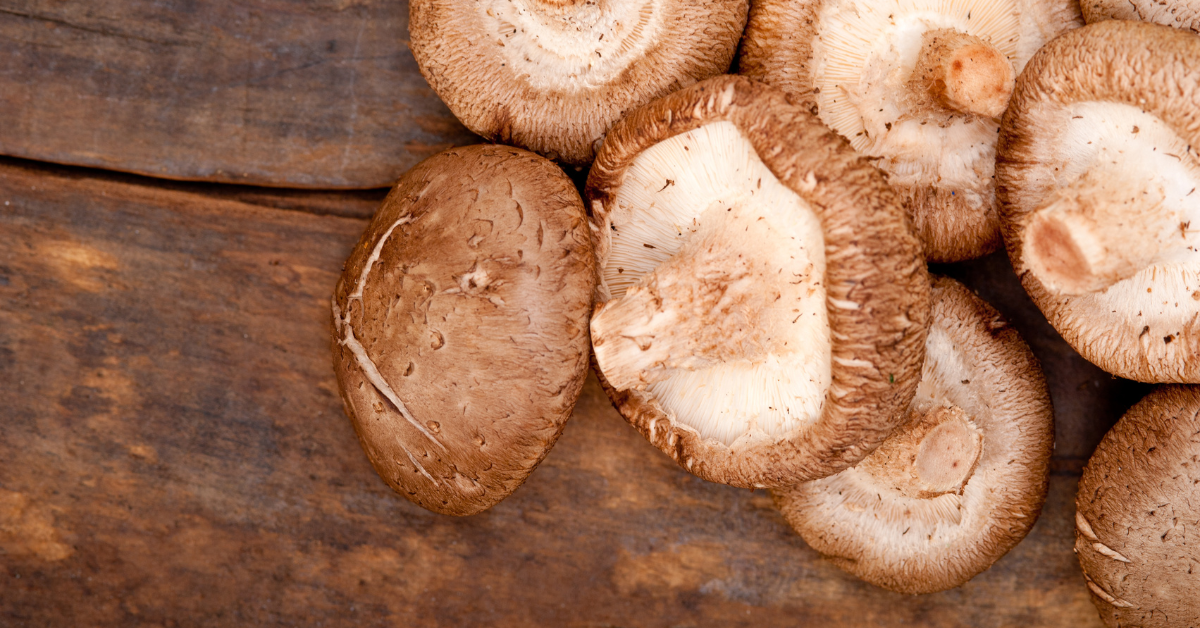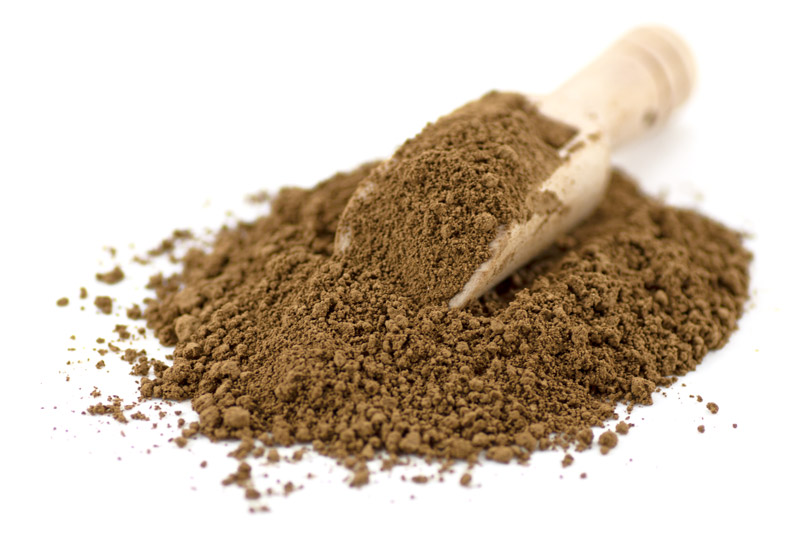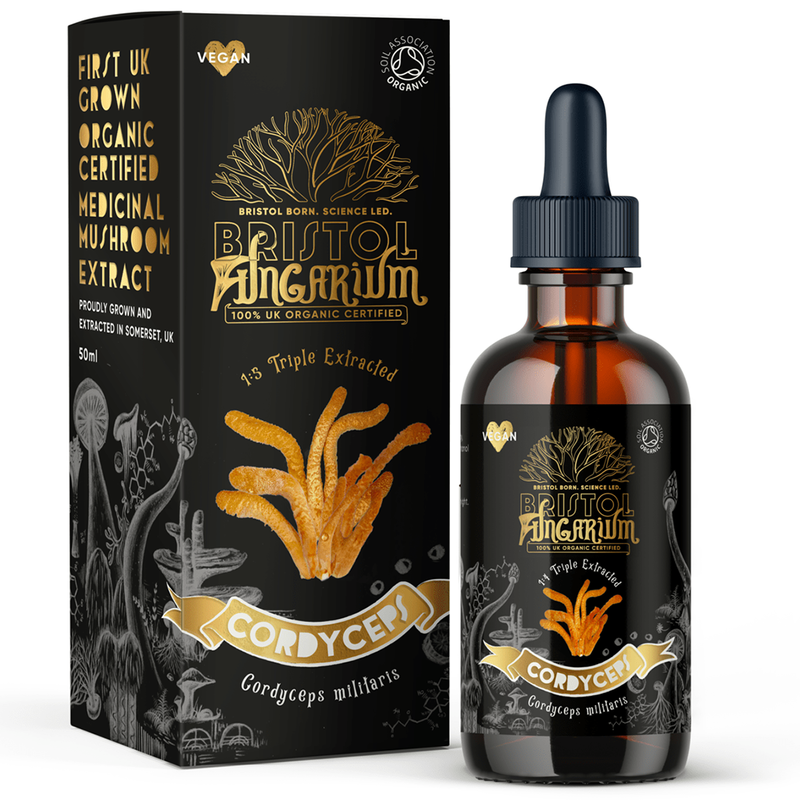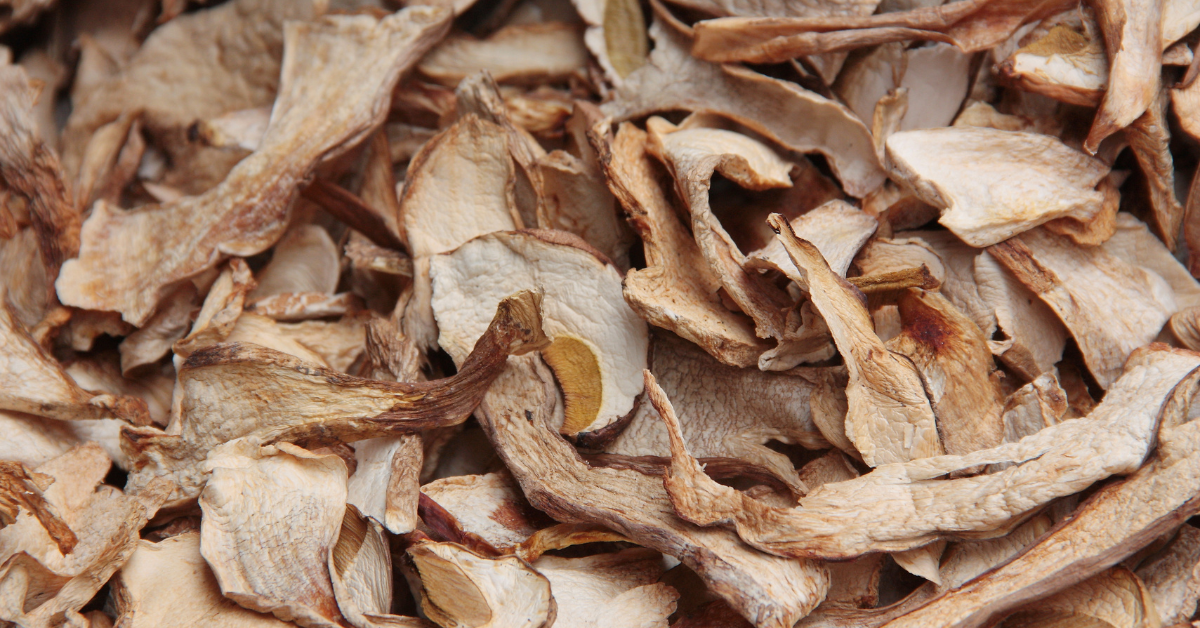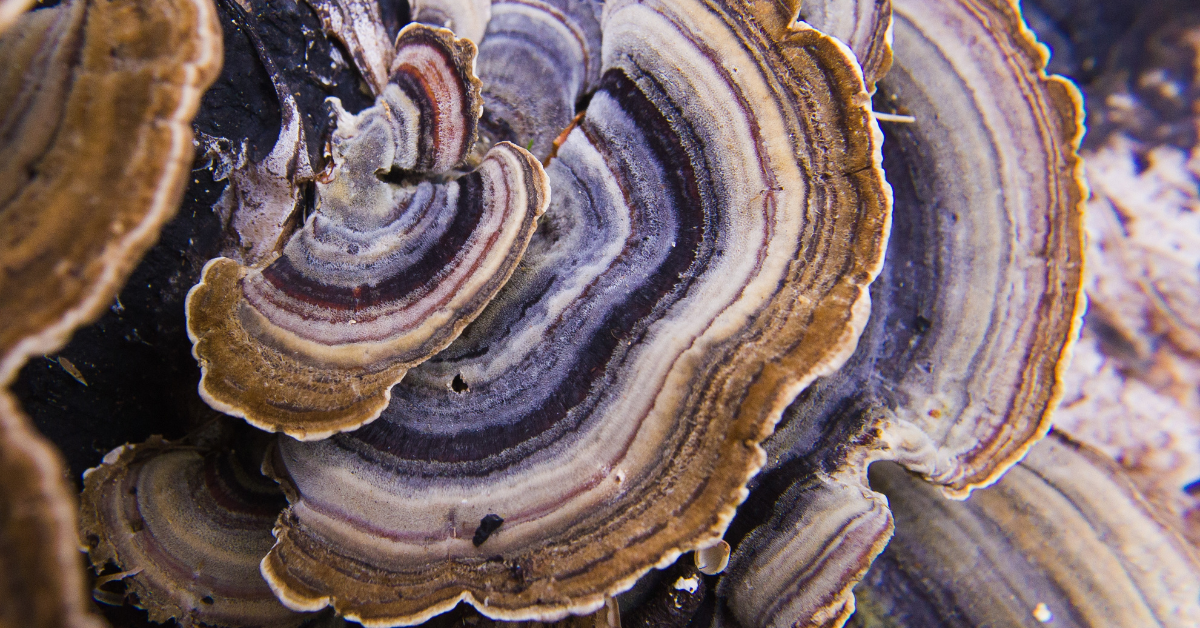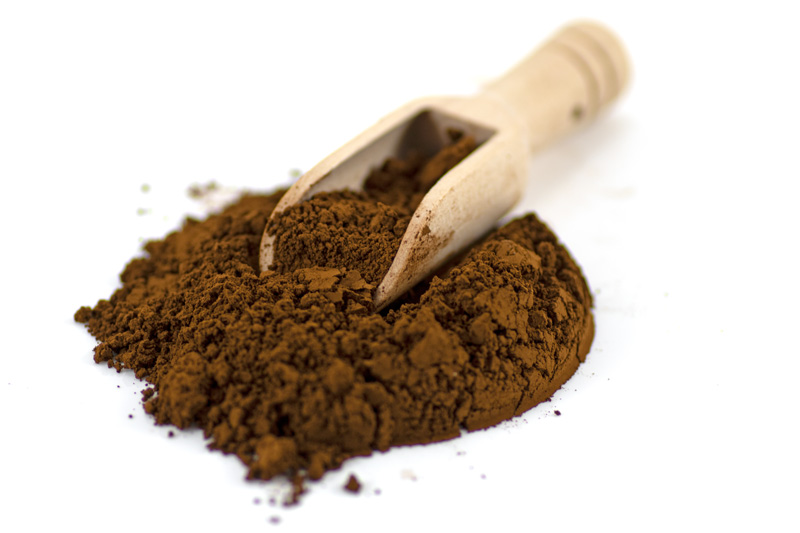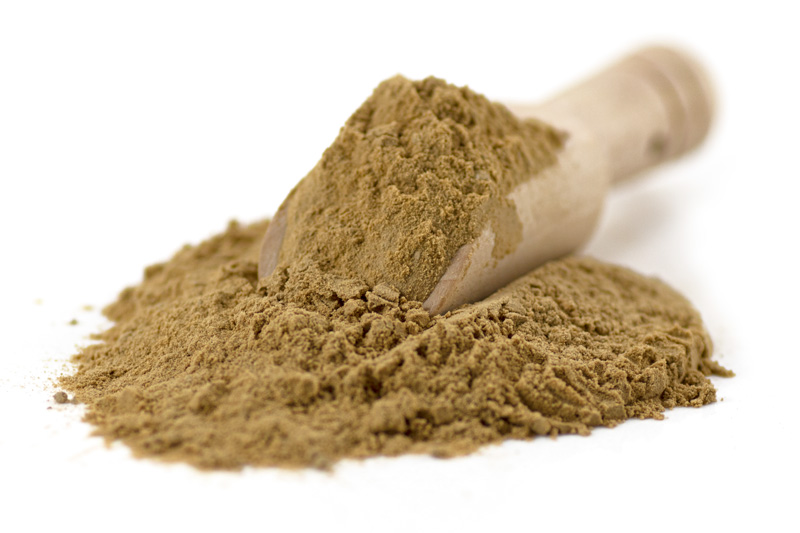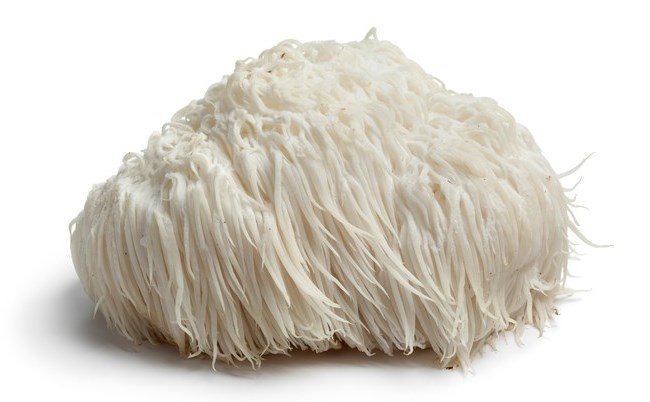Make Room For Mushrooms!
Mushrooms are wonderful – they’re mysterious, exciting, prolific, and can, depending on the variety, be delicious, deadly, imposing, bizarre or beautiful. They hold the soil together while dissembling dead organisms and redistributing their nutrients. They can grow to a gargantuan size – in fact, the largest living organism in the world is a fungus called armillaria ostoyae in Oregon, which is over 2000 years old, estimated to weigh up to 35,000 tons and covers 2,200 acres! Best of all, mushrooms are superb at providing a deep, umami savouriness to your supper, and all serious chefs should always have a supply of dried mushrooms, whole or powdered, in their store cupboard.
There’s also increasing evidence mushrooms can have monumental benefits for our mental health and physical wellbeing as well as making our taste buds rejoice. The mycologist Dr. Paul Stamets believes mushrooms can save the world and advocates using medicinal mushrooms (such as our excellent Organic 7 Mushroom Blend) daily to improve our brains, mood and temperament. Here at Healthy Supplies we advocate getting hold of some of our lip-smackingly deeply-flavoured Champignon Mushroom Powder, or whipping up a big helping of Creamy Mushroom Pasta!
So let’s have a closer look at eight different mushroom varieties and how to use them….
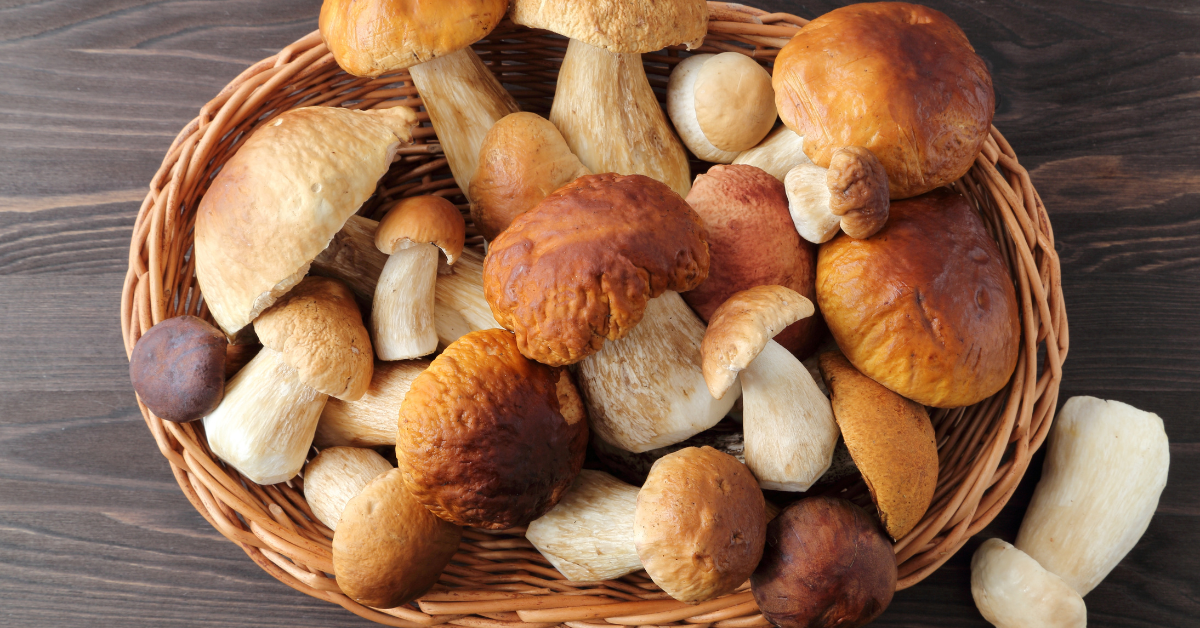
Shiitake mushrooms are commonly used in East Asian cuisine but have increased in popularity all over the world, mainly because of the wonderfully deep savoury notes they confer on all kinds of dishes, not to mention their impressively meaty texture. They’re low in calories while having an impressive fibre content of around 14g per 100g. They contain a whole host of beneficial minerals and vitamins and are especially high in Copper and Vitamin B5, which is essential for metabolising proteins, carbohydrates and fats. They can boost your immunity, protect you against cancer and lower your ‘bad’ cholesterol level. We sell this awesomely flavoursome Shiitake Powder as well as the dried, whole variety, and even these satisfyingly crunchy Shiitake crisps! Don’t forget about our Shiitake tincture – made from mushrooms that are sustainably grown in the UK.
In China, they know Reishi as “the mushroom of immortality”. It’s often found growing in forests, where it produces a fan shape on tree trunks and has a woody texture and glossy appearance. Mostly used medicinally rather than in the kitchen, many people add it to smoothies or take it in supplement form. Research has shown consuming Reishi significantly slows age-related brain degenration, and this study from April 2021 showed that Reishi can vastly reduce the buildup of plaque which blocks arteries.
This is another medicinal mushroom, a mainstay of traditional Chinese medicine, largely taken in supplement or powder form, although it can be ‘brewed’ and drunk like coffee or tea. Research strongly suggests that cordyceps has stunning blood-purifying properties which prevent arterial blockage, while this 2007 paper found it has the ability to inhibit the growth and proliferation of cancer cells. It may also regulate and decrease blood sugar levels in diabetic patients by acting just like insulin.
Perhaps the best-known ‘chefy’ mushroom of all, porcini mushrooms (also known as ceps) grow widely across the Northern hemisphere, especially in deciduous and coniferous forests. The porcini is full of protein, fibre and a great amount of vitamins and minerals, but it’s most highly prized for its resonant, deeply savoury flavour, making it very popular in pasta dishes and risottos, especially in Italian cuisine.
These little fungi have antimicrobial, antiviral and anti-inflammatory properties, and they’re full of fibre, which is superb for the health of your gut. A scientific investigation in 2016 also concluded that an extract of porcini mushrooms can induce colon cancer cells to trigger their own death.
Turkey tail contains prebiotics, which help nourish helpful gut bacteria. An 8-week study in 24 healthy people found that consuming 3,600 mg of PSP extracted from turkey tail mushrooms per day led to beneficial changes in gut bacteria and suppressed the growth of the possibly problematic E. coli and Shigella bacteria.
Turkey Tail has immunomodulating capacity which means it is able to support the immune system both when it is weakened and when it’s being overly active. Turkey tail has been long treasured in traditional medicine protocols and was first recorded during the Ming Dynasty of ancient China in the Compendium of Materia Medica as being beneficial to health and able to “bring longevity if consumed regularly”.
Traditional uses of Turkey Tail include treating coughs and dyspnea (shortness of breath). PSK, found in Turkey Tail is a protein-bound polysaccharide that has been used in Japan for decades to treat a variety of chronic illnesses. A number of clinical trials show Turkey Tail has the potential to support organ health and respiratory function, as well as acting as a powerful anti-inflammatory.
Chaga is a fungus that grows on birch trees in places with cold climates, such as Northern Europe and Alaska. It’s taken medicinally, and although it won’t win any beauty contests (it looks like a big, ugly log), it has one of the most impressive ORAC scores of any food. This measures the Oxygen Radical Absorbance Capacity of a substance; in other words, its antioxidant value. What that means is that Chaga is a stunning all-rounder which works on the human body in a number of beneficial ways, lowering blood pressure, improving heart health, fighting inflammation, supporting blood sugar regulation, preventing cancer and slowing down the ageing process in general.
These delicate culinary wonders are often found in stir fries or coated in light, crispy batter as a tempura starter. Like all mushrooms, it has an attractive nutritional profile – low in calories and high in fibre and antioxidants. It contains a marvellous amount of selenium, which is brilliant at enhancing our bodies’ immune response. They have an excellent array of B vitamins, which ensure the body’s cells are doing what they should. Not only do oyster mushrooms have no cholesterol, they also contain high levels of lovastatin, a molecule that helps lower bad cholesterol levels. This research paper suggested it’s excellent at reducing depression and encouraging the growth of new neural pathways, thus reducing cognitive decline.
Maitake is known across China as ‘the dancing mushroom’, and is one fungi that’s excellent both when taken medicinally and when served for dinner too. Research has shown it’s a potent weapon in the fight against neurodegenrative diseases of the brain such as Alzheimer’s, and a study done in Hong Kong at the start of 2021 concluded it contains polysaccharides and other bioactive compounds which give it vigorous anti-tumour properties and mean it’s magnificent for regulation of the gut, managing blood sugar levels and bringing down blood pressure.
This wonderfully shaggy-looking fungus is prized for its taste (apparently quite like oysters) but has also shown major results in protecting against Alzheimer’s disease and other types of dementia. It also contains anti-inflammatory compounds that work in such a way that they relieve symptoms of anxiety and depression, and can help brain cells re-grow after brain damage caused by strokes.

